Could your cat be feeling anxious due to poor health, conflict with a new dog, or even changes in diet? Whatever the case, if you think your cat is getting stressed, here are some behavioral signs and symptoms to watch out for, so you can help your kitty feel happier and more comfortable.
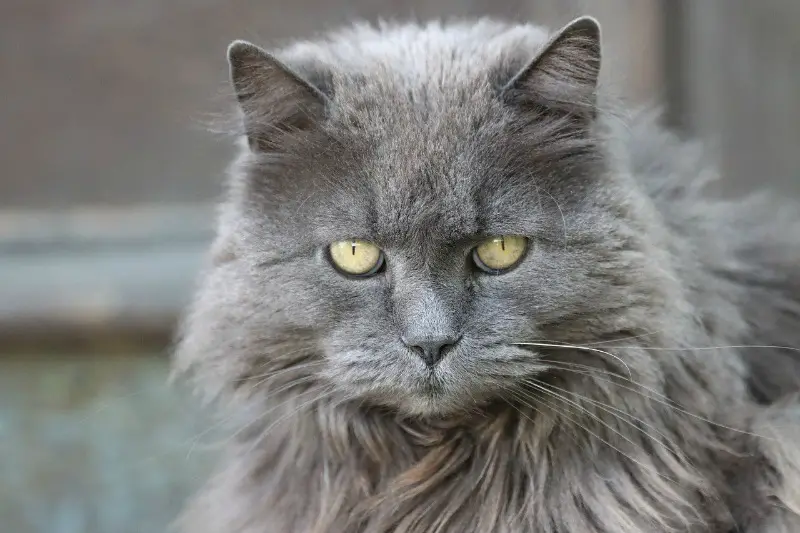
How to Tell if Your Cat is Stressed
What do you need to look for in your cat to determine if he is feeling the effects of stress? Just like with people, there will be some indicators, and while not all of them may definitely point to stress as the problem, if you see several of these factors at work, then you should consider the possibility that your cat is not feeling their usual cheery self:

Not Eating
Your cat won’t starve herself for fun, so if you notice that your cat hasn’t been eating their food, you should definitely look to investigate further.

Not Using the Litter Box Properly
If your cat urinates outside the litter box or otherwise just doesn’t seem to be using the litter box correctly or at all, then We’re All About Pets state that this could be an indicator that your cat is stressed, uncomfortable with the placement of the litter box, or that they have a potential health issue. Cats that are used to using the litter box and then stop are usually suffering from some serious mental or physical ailment, and it is imperative that you figure out what the problem is as soon as possible.
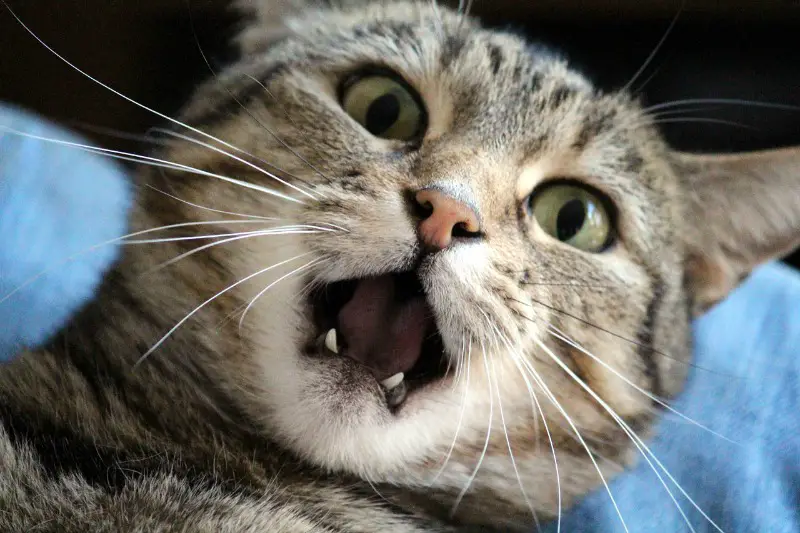
Antisocial Behavior
Cats are not the most social creatures, but if you are used to seeing your cat around and interacting with you, then all of a sudden his behavior stops or drastically decreases, you should suspect that there is something amiss. Your cat may hide away, or climb or perch up high when she is feeling stressed out. This kind of behavior is fine if it only occurs sometimes, but if it’s happening frequently, it could indicate that your cat is stressed.
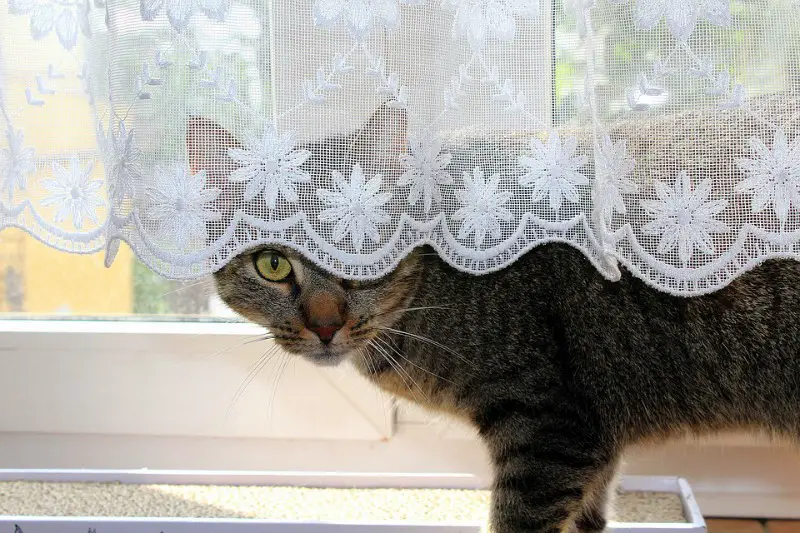
Excessive Grooming
Erratic behavior is a pretty good indicator that your cat isn’t feeling like herself, and one of those strange behaviors is excessive grooming. Cats will clean themselves frequently, but excessive grooming can lead to bald or raw spots on the cat’s fur and are a definite sign that your cat is stressed out about something. Grooming can be a coping mechanism, and when your cat does it obsessively and excessively, that shows that your furry friend has a lot on her mind.
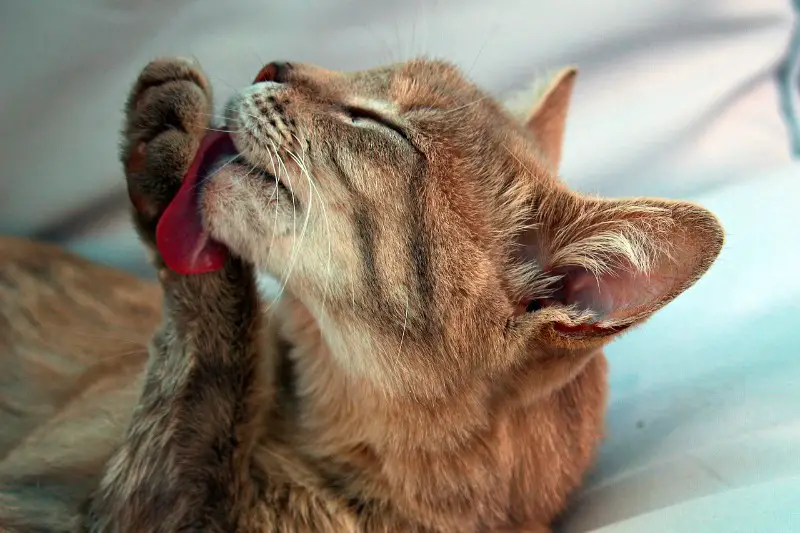
Aggressive Tendencies
Your cat may not be the friendliest feline, but if it usually behaves itself around people and other animals and then suddenly changes that behavior, that could tell you that something is wrong. An aggressive cat is usually trying to keep everyone away from it, which is common during times of great stress.
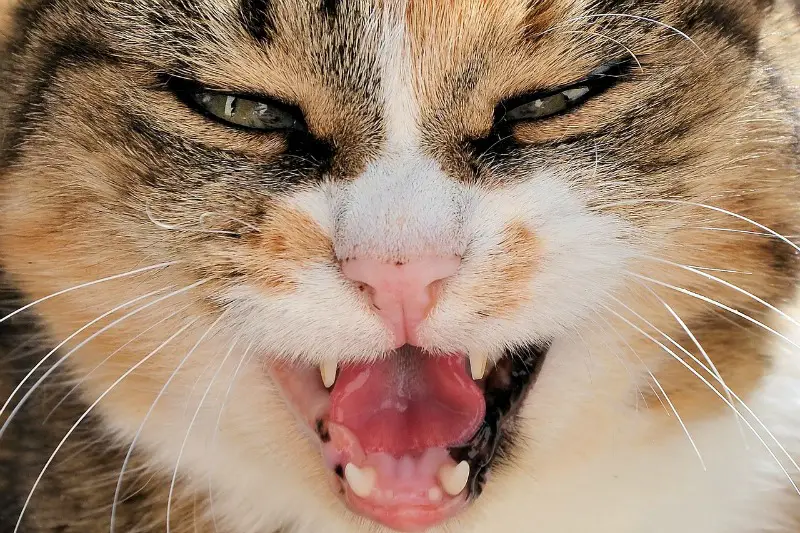
Scratching up Everything
Stressed cats need a way to relieve the pressure they feel, and they may do that through scratching up the furniture, your clothes and everything else in sight. If you notice a normally well behaved cat acting in this way, it should be a warning sign that something is wrong.
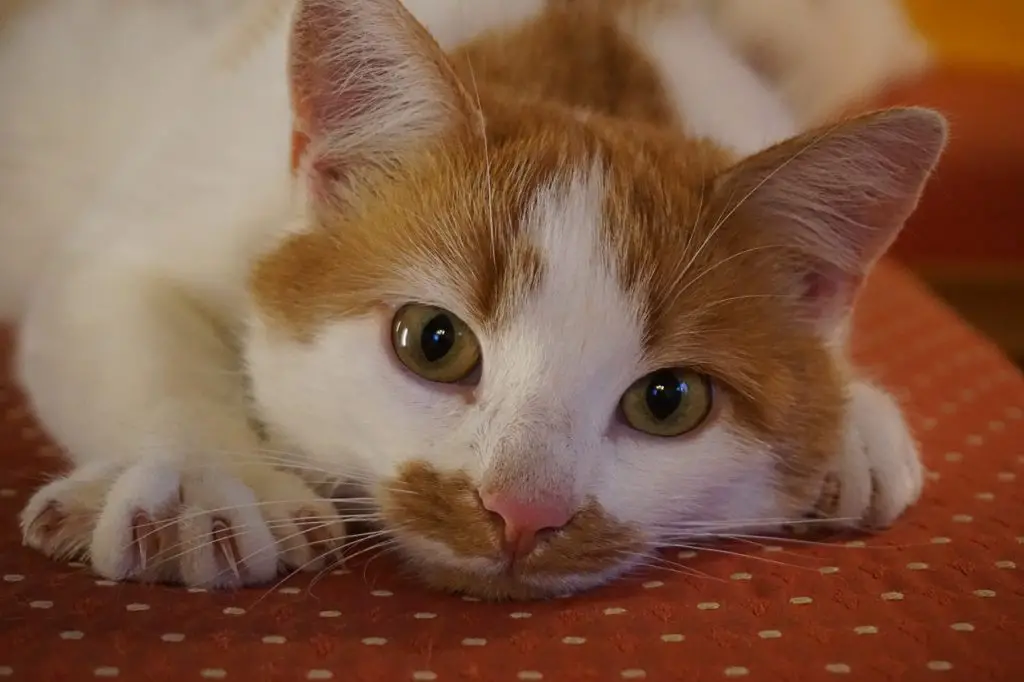
How to Help a Stressed Cat
Okay, so we’ve listed the symptoms of a stressed cat. Now let’s talk about how to help a stressed cat!
Get to the Root Cause
One of the best ways to determine what your cat needs in order to stop feeling so stressed is to figure out what is causing the stress in the first place. You may have to trace the strange behavior back to a source; for cats, this is often having strangers or new people around the house (or perhaps a new baby), introducing a new pet into the home, or health related. These are some of the most common reasons why a cat would be stressed. Once you realize the source of stress for your feline friend, then you can work to remove or alleviate that stressor.
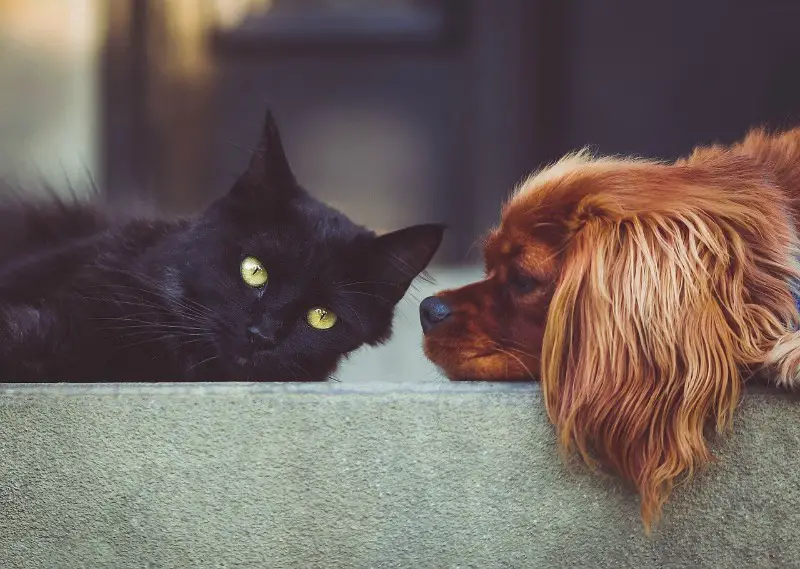
Play Dates
Playing with your cat is a great way to help your furry pal feel better and alleviate some stress. Many cats will be stressed because they are lonely or depressed, and engaging them in activity can be great for their physical and mental wellbeing. Running around outside, playing with some string or yarn, and/or taking your cat for a walk are all great activities to help deal with stress.
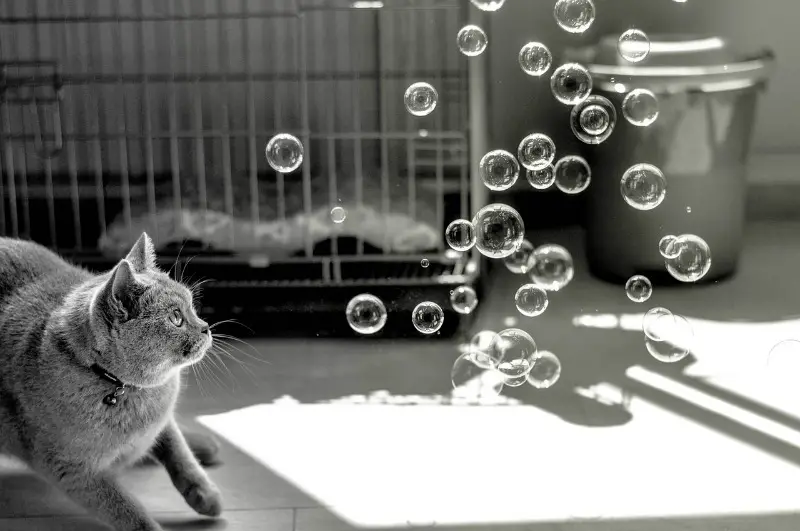
Make their Home a Sanctuary
You can also make your home feel like a safe sanctuary for your cat. Often, cats will feel stressed because they are not comfortable, say the experts at Cornell University. They may not have a ‘safe space’ to retreat to when they feel anxious, or they may feel overwhelmed by all the activity in your home. You can create a perch, a cat cave like Feltcave, or hidey hole for them, using cat trees or cat bed caves. These are products that can be found in your typical pet store, and they can give our cat a safe location to hide away. Hiding is part of a cat’s instinctual behavior, as hiding helps wild cats find prey and remain safe. One of our favorites is the Great White Shark Bed from The Cat Ball (below).

Final Thoughts
Think about how you feel when you are stressed out and what you like to do to ease your stress. Your cat may need some of the same things, and if you work with your cat to reduce stress, you will prolong her life and make her a happier, healthier cat.
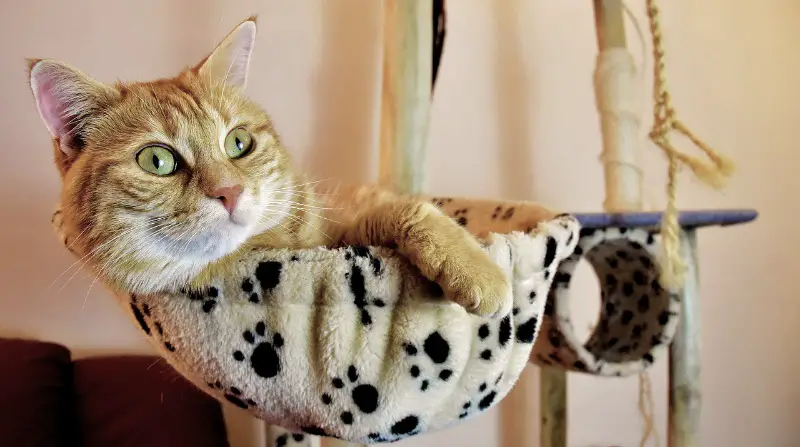
If you’re still not sure if it is stress that is causing your cat to feel and act the way she is, then you should take your cat to the vet for a professional assessment as soon as possible.
Author Bio
This guest post was submitted by web-addicted blogger Lauretta Williams who loves spending her time listening to music, playing with her dog (she loves cats too btw) and writing blogs.




Thanks for sharing these wonderful tips and signs if your cat is stress. When we moved a couple of years ago, we had our one cat that was stressed and hiding when we got to the new place. It took a couple of days but everything was fine soon after. Have a great day and keep up the posts.